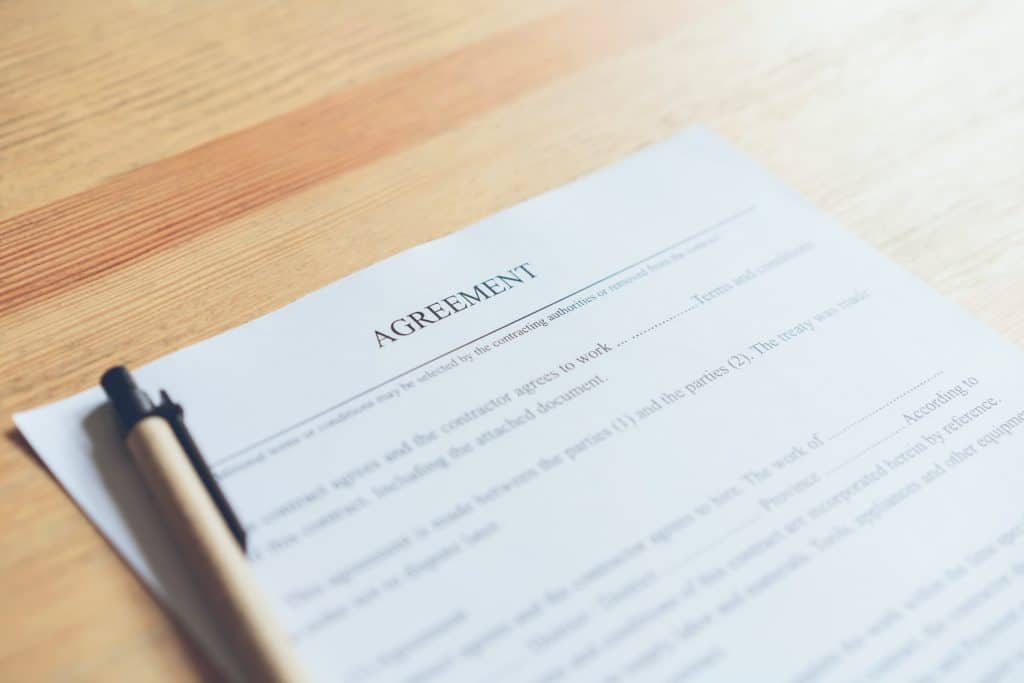Concerned that your employer is asking you to agree to an unfair or unfavourable settlement agreement? Before you make any big decisions, it’s crucial you seek expert guidance from an independent advisor and understand what a reasonable settlement agreement should look like. With years of invaluable experience in this industry, we recognise that complex legal jargon and contracts aren’t always the easiest thing to navigate. To support your understanding of settlement agreements, we explain some of the most common settlement agreement terms and identify what a good outcome should entail.
What should a settlement agreement look like?
According to the Employment Rights Act 1996, a stringent set of conditions must be met for a settlement agreement to be legally-binding. These include the agreement being in writing and with regards to a certain complaint or proceeding, as well as the employee receiving professional advice from an independent advisor or solicitor before signing. Alongside explaining the various terms and clauses of the settlement agreement, the advisor should also highlight any implications that the agreement might have on the employee’s ability to raise a claim or complaint. This advisor must also be identified in the agreement and given protection (often in the form of professional indemnity insurance) from any claims that the employee may raise in the event that they sustain losses as a result of following the advisor’s guidance. Part of these statutory conditions also includes the agreement acknowledging that all the necessary legal requirements have been met. After these specific conditions have been satisfied, the settlement agreement can include any number of clauses and terms according to an individual’s situation.
What are the normal terms of settlement agreement?
As well as including all the legal necessities, there are also normal terms and clauses that most settlement agreements will include. One of the most crucial aspects of a settlement agreement is typically the employee’s waiving of their rights to bring any claims regarding unfair dismissal, discrimination, or breach of contract against their employer. Often, these agreements will also feature non-disclosure agreements (NDAs) or confidentiality clauses, tax indemnities, and practical components such as the employee’s official termination date, notice period, payment, pension implications, and legal fees. Ultimately, these contracts are designed to create a clean break between the employer and employee, so any loose ends should be neatly tied up in this arrangement.
What is a reasonable amount for a settlement agreement?
Unfortunately, there’s no set employee payment for all settlement agreements. Instead, this figure can vary significantly depending on the position you hold, your earnings, and the length of service. In general, however, most employers will offer employees a settlement agreement with compensation between three and six months’ salary, on top of notice pay.
What is a good settlement agreement?
For an employee, the key components of a good and reasonable settlement agreement include not only significant compensation, but other useful clauses such as a reference clause. A reference clause typically ensures that the employer will provide the employee with an agreed reference, helping the employee to swiftly find work after leaving the company. Still wondering ‘what is a reasonable settlement agreement’ for your specific situation? If you’ve never been offered a settlement agreement before, it can be incredibly difficult to know whether you’re receiving a favourable, or even reasonable, arrangement. Fortunately, that’s where the experienced team of settlement agreement solicitors at Freeman Jones Solicitors can help.
Settlement agreement support from experienced solicitors
Our settlement agreement services ensure our clients can understand the complex legal jargon contained within these agreements and make an informed decision. Regardless of whether you’re an employer or employee, if you want professional support negotiating and drawing up a reasonable settlement agreement, feel free to contact our team today. Prefer to pay us an in-person visit? At Freeman Jones Solicitors, we’ve opened offices across the UK including key locations like Chester, Liverpool, Warrington, and Wrexham, so you’re never too far from one of our brick-and-mortar branches. If you have an enquiry or would like to learn more about our settlement agreement services for employers or employees, please don’t hesitate to give us a call on 01244 506 444. Alternatively, you can also get in touch by email (info@fjsolicitors.co.uk) as well as via our online contact form. However you decide to reach out, a member of our team will get back to you soon to find out more about your requirements and to schedule your free, no-obligation, 20-minute consultation.






